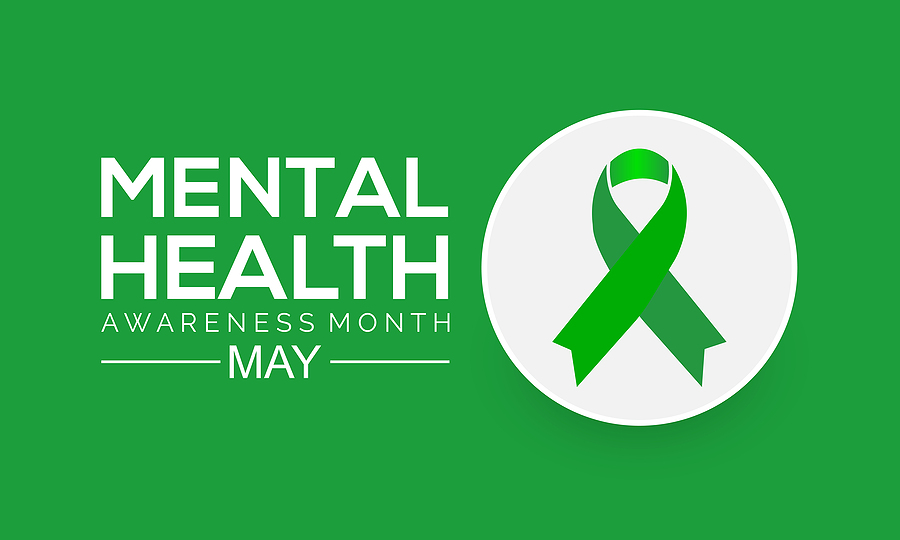
By: Van Ton-Quinlivan
During May, the nation observes Mental Health Awareness Month, dedicated to raising awareness, challenging stigmas, and advocating for mental well-being.
According to Mental Health America, one in five adults in the country suffers from mental illness. While behavioral health challenges affect individuals from all backgrounds and occupations, healthcare workers face heightened levels of stress, making them particularly susceptible to conditions such as anxiety, depression, and post-traumatic stress disorder.
Recently released government data indicates an alarming increase over the past three years of healthcare workers who have left or resigned their roles due to burnout and other mental health conditions, exacerbating the existing strain on healthcare providers. A study conducted by the National Forum of State Nursing Workforce Centers revealed that 100,000 nurses left the profession during the pandemic, and it is projected that up to an additional 800,000 nurses plan to retire by 2027 due to factors such as stress, burnout, or opting for early retirement.
The demand for healthcare professionals extends beyond the need for nurses. The shortage of allied health workers is at unprecedented levels, with one recent survey concluding that more than 85% of hospitals and health systems are experiencing a critical shortage of allied health staff. Currently, the allied healthcare sector accounts for approximately 60 percent of all healthcare positions in the United States, with the need for additional allied health workers only expected to grow by 20% through 2026.
A Perfect Storm
The exodus of experienced healthcare workers seeking respite from emotional strain, on top of normal attrition is creating a significant workforce gap, leaving healthcare employers facing staffing and retention challenges as remaining workers are burdened with increased workloads to compensate for the shortfall.
Why not bring in new graduates, you may ask? Shortages in the capacity to supervise new grads hinder a seemingly solid solution for curing this cycle. It’s an ongoing conundrum, as outsized cost pressures loom large for healthcare employers, yet many continue to hire travelers, often at two to three times the cost. In fact, reducing cost was a central theme as C-suite executives gathered at The Healthcare Management Academy in Nashville, where I recently spoke on the topic of workforce best practices. There is no fast, easy solution to today’s complex circumstances.
Care for the Caregiver
Futuro Health has brought thousands of diverse adults into education journeys along their way to allied healthcare careers, reflecting 90 percent diversity and with an average age of 29. Changing careers and returning to education can be a rewarding adventure for adults looking to reinvent themselves or pursue new jobs. However, it can also be a highly stressful and a mentally challenging experience.
One of the most significant sources of stress is the financial burden of returning to school. Adult students may need to juggle the high costs of tuition while also managing their living expenses. Additionally, many struggle to balance a job, family, or caregiving responsibilities while resuming their education, which can be extremely demanding on their time and energy. For any older adult, simply returning to school can be intimidating itself, particularly with coursework now online or hybrid.
Our staff at Futuro Health spends countless hours supporting our adult Scholars, and our unique model provides a solution to their challenges, including offering tuition-free training opportunities and pathways into careers in allied health, while our online approach to learning allows them the convenience of completing training remotely, often at their own pace, and with guidance from a dedicated team of Futuro Health Success Coaches to assist them all along their educational journey and prepare them for new careers. This includes our Human Touch Healthcare training, which provides the essential interpersonal skills to work in healthcare, encompassing such competencies as Empathy & Compassion, Effective Communication, Emotional Intelligence, Teamwork & Collaboration, and Ethics & Integrity.
Futuro Health is taking steps to assure we are mindful of the mental well-being of our team members and the Scholars they serve. As just one such example, John Cordova, RN and Futuro Health’s Director of Workforce Development & Externship, advocates for self-care and shared this useful link to Take Action for Mental Health (among other resources) within our organization to remind each of us to:
- Check in about mental health.
- Learn More about mental health needs and what you can do.
- Get Support for yourself or someone you care about.
By nurturing a lifelong resilience mindset and fostering a supportive network, we can all strive to create an environment that prioritizes mental well-being. Mental Health Awareness Month presents an opportunity to shine a light on the mental well-being of healthcare workers during May – and throughout the year – as we actively work towards building a more sustainable future for these compassionate individuals who dedicate their lives to caring for others.
Futuro Health CEO Van Ton-Quinlivan is a nationally recognized expert in workforce development. Her distinguished career spans the private, public, and nonprofit sectors. She is a White House Champion of Change and California Steward Leader, and formerly served as Executive Vice Chancellor of the California Community Colleges.



